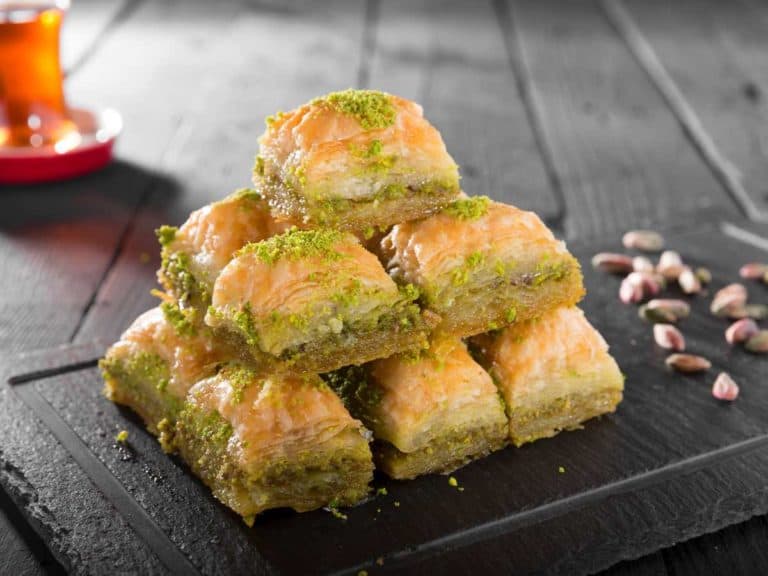Does Oil Evaporate When Cooking
In case you’re cooking with oil, you might be contemplating whether oil dissipates while cooking. We should discover the response to the inquiry oils dissipate when warmed:
For the most part, oil doesn’t evaporate while cooking since cooking oil is typically a blend of a couple of various mixtures. It separates before it begins bubbling, however, there is no evaporating during the cooking interaction. You can consume oil while warming which causes smoke.
Oils respond contrastingly under heat so knowing the sort of oil required when cooking certain food varieties has an effect. Continue reading to know more about this
Where Does Oil Go When Cooking?
Many individuals wonder about oil evaporating, and there are various situations to consider. As a rule, oil gets consumed by the food as opposed to evaporating.
When cooking, it doesn’t evaporate but instead “cooks off” or must be depleted. Think about this: when searing food, there is oil left in the container. The bit of food that is seared additionally has a sleek buildup to it.
At the point when the oil begins smoking, it’s beginning to consume. When broiling, have the oil at the right temperature. The more sultry the oil is, the less the food adsorbs the oil leaving more oil left in the dish.
Many individuals consider the sticky, tacky buildup left on surfaces from oil as some type of evaporating, however, by and large, it simply splatters from cooking. Here’s the reason:
- Oil separates before it bubbles
- Oil can be obliterated by warming
- Oil can consume by warming when oxygen is available
- Broiling discharges oil beads into the air
- Oil is combustible and will smoke, then, at that point go into blazes before it begins bubbling
The oil helps seal in various squeezes, flavors, and kinds of the food you are getting ready for, yet it can without much of a stretch become excessively sleek, ruining the taste.
Related Article: Olive Oil Brands You Should Avoid
What Happens To Oil When Heated?
Oil gets warmed up to various temperatures during a cooking interaction.
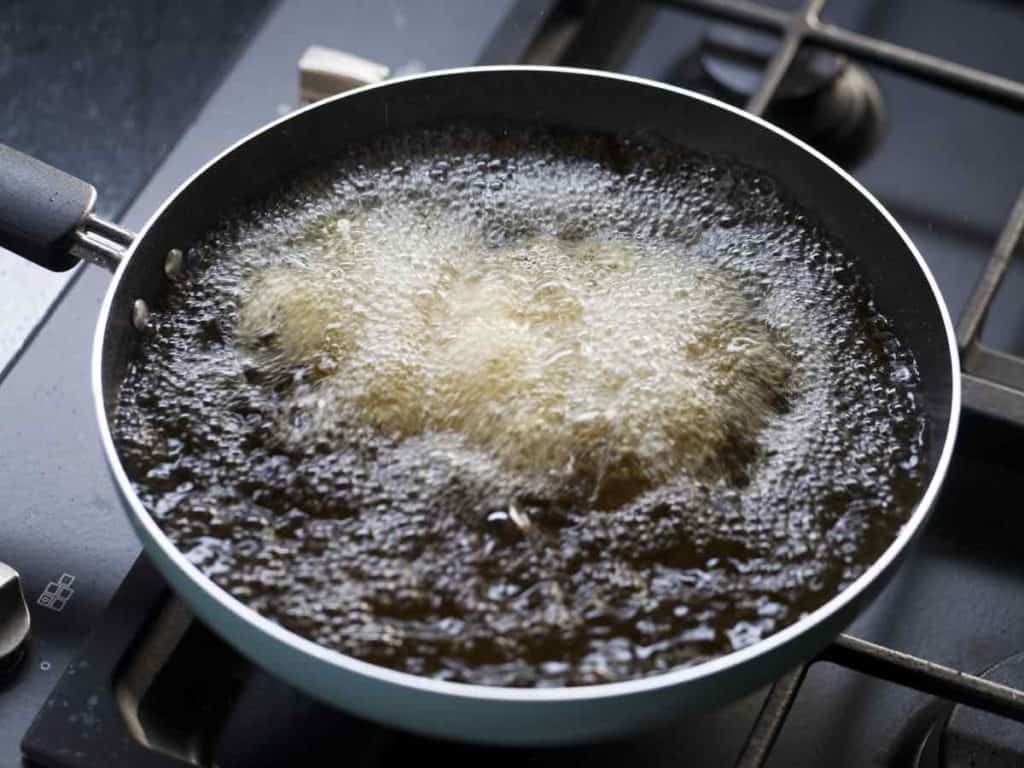
It is warmed practically up to its smoking point for profound browning and to bring down temperatures for different sorts of cooking measures. Oil begins to smoke when it is over-warmed and begins to frame aldehydes, ketones, alcohols, dienes, and acids.
Therefore, if you keep on cooking something in a similar oil, the food item will taste ineffective. All the more significantly, the smoke of rapeseed, soybean, nut oil, and fat can cause genuine mutagenicity and hereditary harmfulness.
A couple of offenders to consider are an aldehyde called acrolein, just as alkenes and alkadienals (unsaturated aldehydes) – they are shaped during the consuming/smoking interaction of the previously mentioned oil. Many drive-through eateries utilize nut oil to profound fries their fries.
Grease is generally utilized in pie outsides, and soybean is famous in families.
Acrolein is extremely harmful to our cells and qualities – they debase our cells and qualities; they likewise produce free revolutionaries. Free extremists are answerable for cell maturing.
What Is The Smoke Point Of Cooking Oils?
Cooking oils are a fundamental element for profound browning and keeping food from adhering to skillet. Nonetheless, they all have restrictions depending on their structure.
Do you realize how to pick oil for various cooking applications and why? Utilizing the smoke point is perhaps the most target approach to decide, keeping capacity, wellbeing, and security as a primary concern.
For instance, when cooking at high temperatures like pan-searing or profound singing, it’s ideal to choose an oil with a high smoke highlight to give an agreeable cushion during the cooking cycle.
You’ll likewise need to think about the length, as a fast saute can utilize spread which has a lower smoke point, however simply because the time in the container isn’t insofar as searing something like breaded chicken.
The temperature at which oil starts to separate into free unsaturated fats and noticeably produce smoke. This temperature is estimated with a thermometer, shifts between various oils, and with delayed warming, all oils will smoke.
Keeping up with this temperature can become perilous and conceivably light a fire if you arrive at the flashpoint of the oil.
Smoke point temperatures of various oils
| Fat/Oil | Smoke Point | Application |
|---|---|---|
| Avocado Oil, Refined | 520-570°F (271-299°C) | Saute, pan-fry, baking, roasting, grilling, dressings |
| Butter | 300-350°F (149-175°C) | Saute, quick pan-fry, baking, roasting |
| Canola Oil | 400-450°F (204-230°C) | Searing, saute, pan-fry, stir-fry, baking, roasting, grilling, deep-frying |
| Clarified Butter | 450°F (230°C) | Saute, pan-fry, baking, roasting |
| Coconut oil | 350-385°F (175-196°C) | Saute, pan-fry, baking, roasting |
| Corn Oil | 410-450°F (210-230°C) | Searing, saute, pan-fry, baking, roasting, grilling, deep-frying |
| Extra-Virgin Olive Oil | 325-410°F (163-210°C) | Saute, finishing oil, dressings, marinades, baking |
| Grapeseed Oil | 390°F (195°C) | Saute, pan-fry, baking, roasting, dressings |
| Lard | 370°F (188°C) | Saute, pan-fry, baking, roasting, deep-frying |
| Light/Refined Olive Oil | 425-465°F (218-241°C) | Saute, pan-fry, grilling, baking, roasting |
| Margarine | 410-430°F (210-221°C) | 410-430°F (210-221°C) |
| Peanut Oil | 440-450°F (227-230°C) | Searing, saute, pan-fry, stir-fry, baking, roasting, grilling, deep-frying |
| Safflower | 510°F (265°C) | Searing, saute, pan-fry, baking, roasting, grilling, deep-frying |
| Sesame Oil | 350-410°F (175-210°C) | Saute, small amount for stir-frying |
| Soybean Oil | Saute, small amount for stir-frying | Searing, saute, pan-fry, baking, roasting, grilling, deep-frying |
| Sunflower Oil | 440°F (230°C) | Searing, saute, pan-fry, baking, roasting, grilling, deep-frying |
| Vegetable Oil | 400-450°F (204-230°C) | Searing, saute, pan-fry, stir-fry, baking, roasting, grilling, deep-frying |
| Vegetable Shortening | 360-410°F (180-210°C) | Baking, saute |
The design of oils, particularly free unsaturated fats, decides its reasonableness for use in high-temperature searing.
By definition, fats are strong at room temperature while oils stay fluid. Fats are composed of fatty substances, which are three unsaturated fats clung to a glycerol atom.
Normally vegetable-determined oils have a higher smoke point than creature-based fats. The special case is olive oil which is nearer in smoke highlight margarine relying upon the degree of refinement and brand.
Something else to consider is how much the oil is refined. This cycle eliminates debasements that add to smoking, which expands the smoke point.
Most meat-based fats, for example, are high in soaked fats, while plant-based oils are high in unsaturated fats. The medical advantages are better when cooking with plant-based oils. In any case, the flavor of creature fats is more delightful.
At the point when the oil is warmed and placed in touch with food the smoke point and suggested use length decreases. The oil begins to respond with the water from different fixings to shape all the more free unsaturated fats.
Unsaturated fats likewise oxidize when warmed. Fresher oil will have a higher smoke point and afterward brings down after some time with nonstop warming. The rate at how rapidly oil separates into free unsaturated fats can be shown by its smoke point.
Related Article: Best Oils For Cooking Steak
How Quickly Does Cooking Oil Evaporate
To more readily see how and when oil evaporates, you should know first the 2 classifications of oils. One is named volatile oils and the other is called fixed oils.
Volatile oils come from predominantly plants and their leaves, roots, petals, and bark. These are viewed as fundamental oils. These oils will regularly evaporate completely and totally.
This can normally require a few days and even a long time to happen. The evaporating interaction normally brings about very little to no buildup left. These kinds of oils are utilized in fragrances.
Concerning fixed oils, these are typically viewed as our cooking oils. Fixed oils contain a lot higher convergence of unsaturated fat and glycerin. The significant wellspring of these oils comes from seeds and when it dissipates, it does as such leaving behind a tacky buildup.
The cycle of evaporation for fixed oils can require a very long time to even a long time.
Does Olive Oil Evaporate At Room Temperature?
The short answer is yes. However, it’s somewhat more muddled than that. Oil can dissipate at room temperature, however just until the centralization of gaseous oil and fluid oil is in harmony.
What Causes Oil To Evaporate?
As a rule, the fundamental motivation behind why oil, or some other fluids besides, evaporates is because of active energy.
Ponder atoms.
They are continually moving even inside the oil. Presently, the level of evaporating is primarily a consequence of the dispersion of rates that an atom inside a substance like oil has. Particles that move super quick have a more probable shot at leaving the fluid stage as gas.
One thing that assumes a major part in the pace of dissipation is weight. Oils, contrasted with plain water (H2O), are composed of huge atoms. There are huge loads of carbon binds connected to make oil.
What Happens When Oil Evaporates
It could consume most of the day for the oil to evaporate. However, concerning cooking oil, when it evaporates it leaves behind a stain or buildup. This buildup winds up staining nearly anything it contacts.
You can see these stains leftover on the pots and containers in your own home. The stain in pots and skillets doesn’t occur by ordinary dissipation. These were sped up by heat. Yet, the fundamental thought is still there.
Does Frying Oil Dissipate?
Once more, how about we return to the possibility of motor energy. Presently, dynamic energy is corresponding to its temperature. Higher temperatures will make particles inside the oil move quicker and possibly permit it to break liberated from the crowd.
So the appropriate response is true, singing oil makes the oil dissipate somewhat. Be that as it may, being restrictive to oil and fat is the smoking point.
During cooking, the oil will smoke well before it dissipates. This is when rather than stewing over a fire, the oil will let out some genuine smoke in the wake of arriving at a specific temperature.
Be careful, the oils can arrive at a specific temperature where they go into something many refer to as a flashpoint. Now, you need to realize that it can deliver ignitable gas. Try not to allow it to get to this point.
What To Do With Oil After Use?
Whenever you are done broiling, the principal thing is to allow the oil to cool.
Eliminate the oil from heat when you are done utilizing it and let it cool totally. In the wake of cooling, it’s an ideal opportunity to strain the oil. Use cheesecloth and a sifter to get every one of the pieces and pieces staying in the oil so you will have quite recently the oil.
You need to eliminate those abundance pieces since they can leave a peculiar taste when warmed. In case you were pondering, indeed, you could reuse oil.
Once stressed, utilize a glass container or a similar jug as a compartment for the oil. A few groups utilize huge espresso jars. When you have it in a perfect holder, store the oil in a cool, dry spot. Ensure it’s not somewhere that gets hot, as on a rack close to the broiler or microwave.
Read Also: Reusing Cooking Oil: Rules and Exceptions
Disposing Of Cooking Oil
Outstanding amongst other approaches to discard any cooking oil is to put it in a holder that can withstand heat and either take it to a reusing focus or put it with your ordinary trash.
Some people freeze utilized cooking oil for some time in the future. Whatever you do, don’t dump oil. Oils don’t blend well in with water and can harm pipes and unleash destruction on septic frameworks.
Oil can likewise make issues with trees and roots near sewer and septic tank lines. At the point when oils dumped arrive at the wet climate where underground lines are, they can leak through the breaks and begin adhering to those roots. Thus, the line might break and implode the line.
Related Article: How To Store Olive Oil For a Long Term
Best Cooking Oils For High Heat And Health
Canola or coconut?
Olive or avocado oil?
Cooking oils are not made equivalent, yet what is the best oil to place in your fry skillet?
By cooking oils, I mean those with a high smoke point so you can saute, sautéed food, and profound fry without the oil separating to deliver poisonous exhaust and free revolutionaries that can harm solid cells in your body.
Avocado oil
Avocado Oil has the most elevated smoke point of all. With it comes a weighty sticker price, alongside a nutty flavor it will bestow to your singed food.
In contrast to numerous vegetable oils, you can discover normally squeezed forms rather than refined through a substantial mechanical interaction filled with synthetics. Avocado Oil has the most noteworthy smoke point of all. With it comes a powerful sticker price, alongside a nutty flavor it will confer to your singed food.
In contrast to numerous vegetable oils, you can discover normally squeezed forms rather than refined through a substantial modern interaction loaded with synthetics
Virgin Olive Oil
Virgin Olive Oil is ideal for cooking, however, it very well may be difficult to source. Additional virgin olive oil appears to rule the olive oil rack in general stores. The solitary issue is that the smoke point can change immensely from 320 – 405°F.
Unadulterated olive oil is a mix of refined olive oil and virgin olive oil and ought to be stayed away from if conceivable.
Coconut Oil
Unrefined Coconut Oil is likewise normally squeezed like avocado oil. It also has many proof-based medical advantages.
The crude form of the oil however has a lower smoke point at 350°F. This would be more qualified to prepare for light sauteeing instead of profound singing.
How To Choose The Best Cooking Oil
Anybody can empty some oil into a container and cook.
Yet, picking the right cooking oil can mean a distinction between a delectable, nutritious dinner, and a smoke alert going off over your consumed food. Contingent upon whether you intend to heat, sear, barbecue, fry, profound fry, or meal, distinctive cooking oils will create various outcomes.
Presently, I’m not recommending that you go out and purchase twelve distinctive cooking oils, yet you may profit from having something beyond one in your kitchen without a doubt. So what would it be a good idea for you to consider?
Stability of cooking oils
The best oils for cooking are those that stay stable considerably under high temperatures.
Solidness relies upon how effectively the cooking oils oxidize; that is, how effectively they respond with oxygen to frame free revolutionaries. The main factor in deciding oil’s protection from oxidation is the general level of immersion of the unsaturated fats in it.
Smoke point
The smoke point is in a real sense the temperature at which the oil quits stewing and starts smoking. The more steady the oil, the higher its smoke point is.
At the point when oil is warmed past its smoke point, it deteriorates – it loses its advantageous supplements, produces poisonous vapor, and makes destructive free revolutionaries.
Likewise, when there’s smoke, it implies the oil is extremely near its “streak point” – where it might burst into flames.
Quality of raw ingredients
The nature of the first crude fixings (nuts, seeds, grains, vegetables, organic product) is essential in deciding the possible nature of the fat.
Natural oils are superior to their non-natural partners. The explanation is that pesticides are fat-solvent and aggregate in plant’s unsaturated fats. What’s more, since oils are extremely focused, pesticides and other natural poisons pack more punch in a modest quantity.
Another advantage of the “natural” name is that natural equivalents are non-hereditarily adjusted. The most ordinarily hereditarily adjusted plants incorporate canola, corn, cottonseed, and soybean.
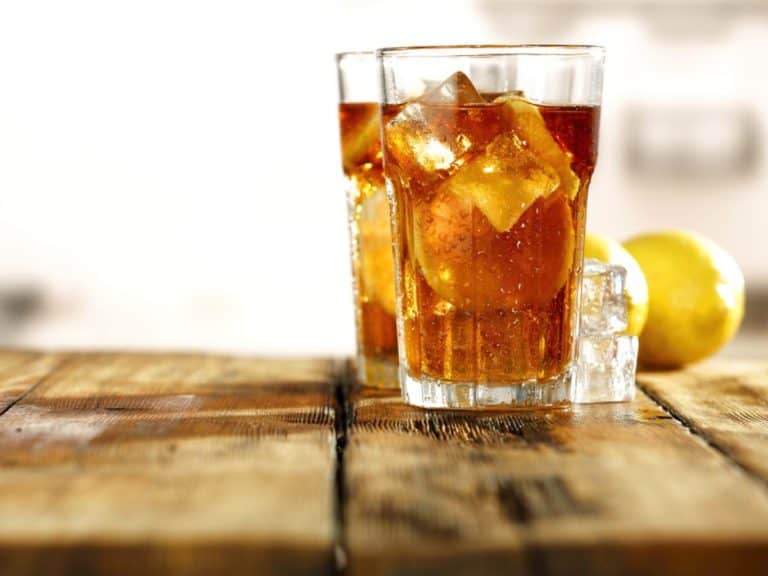
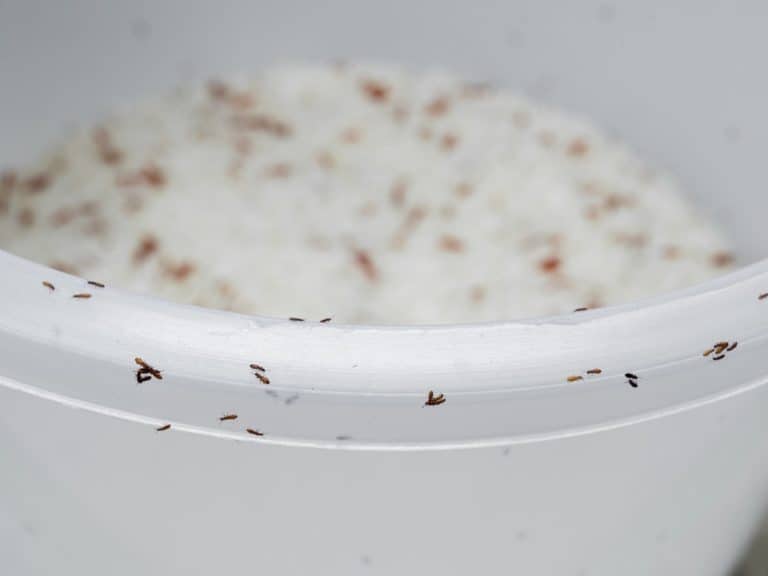
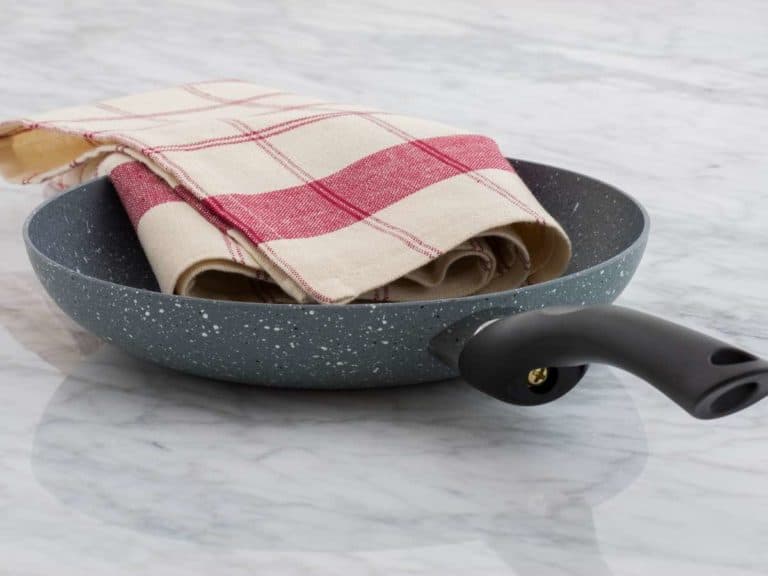

![How to Store Raw Chicken [According to Science]](https://foodwine.com/wp-content/uploads/raw-chicken-1010586004-768x576.jpg)
